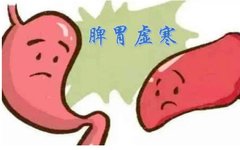 Click the blue text above to follow us
Click the blue text above to follow us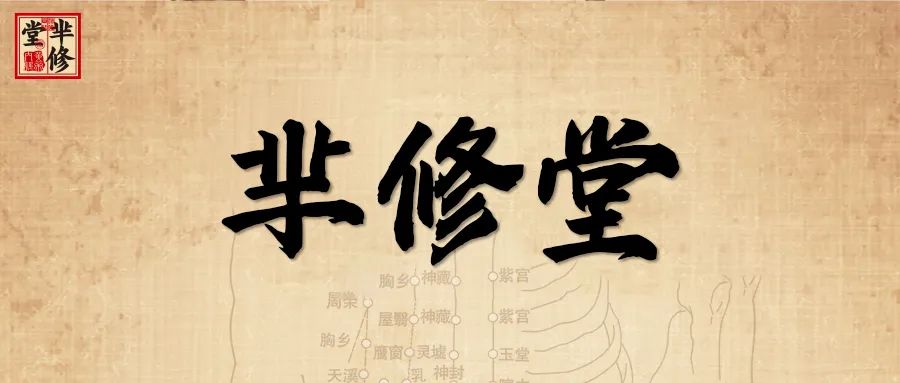 After the start of winter, as the temperature drops, some people often feel a dull pain in their abdomen, and in severe cases, they may even experience diarrhea.Especially in the early morning, as soon as they are exposed to cold wind, symptoms of abdominal pain and diarrhea may appear.In fact, the above situation may be caused by “Spleen and Stomach Yang Deficiency”.Internal dampness accumulates and transforms into phlegm, thus dampness first harms the spleen; when the spleen is deficient, the body becomes more susceptible to illness.People usually focus on nourishing the kidneys, as kidney deficiency leads to aging.However, spleen deficiency can lead to a higher susceptibility to other diseases and significantly affects nutrient absorption.
After the start of winter, as the temperature drops, some people often feel a dull pain in their abdomen, and in severe cases, they may even experience diarrhea.Especially in the early morning, as soon as they are exposed to cold wind, symptoms of abdominal pain and diarrhea may appear.In fact, the above situation may be caused by “Spleen and Stomach Yang Deficiency”.Internal dampness accumulates and transforms into phlegm, thus dampness first harms the spleen; when the spleen is deficient, the body becomes more susceptible to illness.People usually focus on nourishing the kidneys, as kidney deficiency leads to aging.However, spleen deficiency can lead to a higher susceptibility to other diseases and significantly affects nutrient absorption.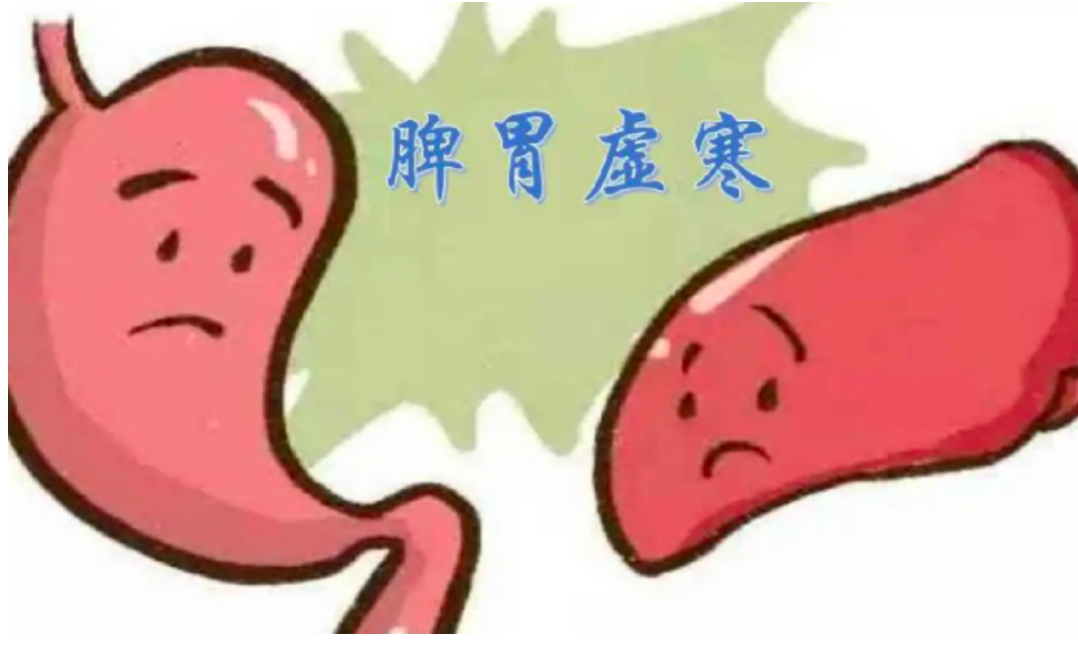 1. What are the symptoms of Spleen and Stomach Yang Deficiency?Traditional Chinese Medicine (TCM) believes that the spleen and stomach are responsible for the transformation and transportation of food and drink, serving as the source of Qi and blood.If there is Yang deficiency in the spleen and stomach, the following symptoms may manifest:● Dull abdominal pain that improves with gentle massage or heat application;● Sensitivity to cold in the abdomen, with cold weather easily causing cold hands and feet;● Frequent loose stools, especially after consuming cold or raw foods or exposure to cold wind;● Poor appetite and easy fatigue.In winter, the cold weather can exacerbate internal cold pathogens, leading to further deficiency of Yang Qi in the spleen and stomach, making the condition of Spleen and Stomach Yang Deficiency more severe. So how can we seize this opportunity for proper nourishment?
1. What are the symptoms of Spleen and Stomach Yang Deficiency?Traditional Chinese Medicine (TCM) believes that the spleen and stomach are responsible for the transformation and transportation of food and drink, serving as the source of Qi and blood.If there is Yang deficiency in the spleen and stomach, the following symptoms may manifest:● Dull abdominal pain that improves with gentle massage or heat application;● Sensitivity to cold in the abdomen, with cold weather easily causing cold hands and feet;● Frequent loose stools, especially after consuming cold or raw foods or exposure to cold wind;● Poor appetite and easy fatigue.In winter, the cold weather can exacerbate internal cold pathogens, leading to further deficiency of Yang Qi in the spleen and stomach, making the condition of Spleen and Stomach Yang Deficiency more severe. So how can we seize this opportunity for proper nourishment? 2. How to Nourish Spleen and Stomach Yang Deficiency in Winter1. Dietary Recommendations(1) Avoid consuming raw and cold foods. Raw and cold foods can harm the body’s Yang Qi; those with Spleen and Stomach Yang Deficiency should avoid foods like bitter melon, winter melon, mung beans, and lettuce, and should not drink cold beverages or eat ice cream.(2) Consume warm and hot foods appropriately. In winter, Yang Qi is stored, so it is advisable to eat warm foods to warm Yang and dispel cold, such as lamb, yellow eel, leeks, longan, ginger, pepper, and Sichuan pepper.It is important to note that individuals with Spleen and Stomach Yang Deficiency have poor digestive capacity; if they consume a large amount of warm foods in a short time, it may lead to food stagnation, resulting in what is known as “deficiency not receiving nourishment,” which can manifest as sore throat, oral ulcers, insomnia, etc.Therefore, in terms of diet, one should pay attention to the combination of ingredients and adjust the frequency of nourishment according to individual conditions.
2. How to Nourish Spleen and Stomach Yang Deficiency in Winter1. Dietary Recommendations(1) Avoid consuming raw and cold foods. Raw and cold foods can harm the body’s Yang Qi; those with Spleen and Stomach Yang Deficiency should avoid foods like bitter melon, winter melon, mung beans, and lettuce, and should not drink cold beverages or eat ice cream.(2) Consume warm and hot foods appropriately. In winter, Yang Qi is stored, so it is advisable to eat warm foods to warm Yang and dispel cold, such as lamb, yellow eel, leeks, longan, ginger, pepper, and Sichuan pepper.It is important to note that individuals with Spleen and Stomach Yang Deficiency have poor digestive capacity; if they consume a large amount of warm foods in a short time, it may lead to food stagnation, resulting in what is known as “deficiency not receiving nourishment,” which can manifest as sore throat, oral ulcers, insomnia, etc.Therefore, in terms of diet, one should pay attention to the combination of ingredients and adjust the frequency of nourishment according to individual conditions.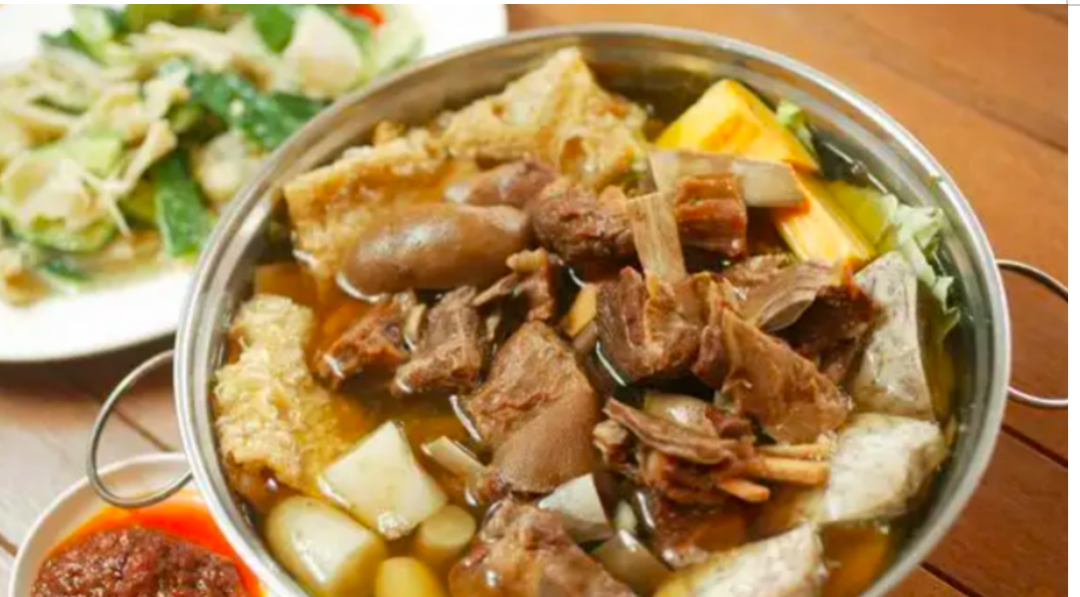 2. Dress Appropriately and Avoid Wind and ColdIndividuals with Spleen and Stomach Yang Deficiency should dress warmly in winter to prevent external cold pathogens from invading the body and damaging Yang Qi, especially paying attention to keeping the abdomen, neck, and lower limbs warm.Therefore, when going out, wear more layers and prepare extra clothing, avoiding the mindset of “fashion over warmth”.
2. Dress Appropriately and Avoid Wind and ColdIndividuals with Spleen and Stomach Yang Deficiency should dress warmly in winter to prevent external cold pathogens from invading the body and damaging Yang Qi, especially paying attention to keeping the abdomen, neck, and lower limbs warm.Therefore, when going out, wear more layers and prepare extra clothing, avoiding the mindset of “fashion over warmth”. 3. Moxibustion to Warm Yang and Dispel ColdMoxibustion can warm Qi and blood and open the meridians. On one hand, it can expel internal wind, cold, and dampness, while on the other hand, it can enhance the body’s Yang Qi.At home, one can perform moxibustion on points that have warming and cold-dispelling effects, such as Zhongwan (中脘), Guanyuan (关元), Qihai (气海), Shenque (神阙), Piyu (脾俞), and Zusanli (足三里).It is worth noting that when performing moxibustion in winter, ensure good ventilation while keeping warm, and avoid moxibustion in direct drafts.
3. Moxibustion to Warm Yang and Dispel ColdMoxibustion can warm Qi and blood and open the meridians. On one hand, it can expel internal wind, cold, and dampness, while on the other hand, it can enhance the body’s Yang Qi.At home, one can perform moxibustion on points that have warming and cold-dispelling effects, such as Zhongwan (中脘), Guanyuan (关元), Qihai (气海), Shenque (神阙), Piyu (脾俞), and Zusanli (足三里).It is worth noting that when performing moxibustion in winter, ensure good ventilation while keeping warm, and avoid moxibustion in direct drafts. 3. Recommended Dietary Therapy1. Ginger Date TeaIngredients: 15g fresh ginger, 3 red dates, appropriate amount of brown sugar. (Serves 1)Method: Remove the pits from the red dates and break them open, cut the ginger into pieces, add to a pot with water, bring to a boil, then add brown sugar to dissolve.Suitable for: Individuals with Spleen and Stomach Yang Deficiency and blood stasis due to cold.Common symptoms include dull abdominal pain, pain triggered by cold, dysmenorrhea, scanty menstruation with blood clots, loose stools, cold hands and feet, fatigue, pale complexion, and dark lips.
3. Recommended Dietary Therapy1. Ginger Date TeaIngredients: 15g fresh ginger, 3 red dates, appropriate amount of brown sugar. (Serves 1)Method: Remove the pits from the red dates and break them open, cut the ginger into pieces, add to a pot with water, bring to a boil, then add brown sugar to dissolve.Suitable for: Individuals with Spleen and Stomach Yang Deficiency and blood stasis due to cold.Common symptoms include dull abdominal pain, pain triggered by cold, dysmenorrhea, scanty menstruation with blood clots, loose stools, cold hands and feet, fatigue, pale complexion, and dark lips. 2. Lamb, Sugarcane, and Water Chestnut SoupIngredients: 250g lamb, 50g water chestnut, 100g black-skinned sugarcane, 10g angelica, 6 slices of ginger, appropriate amount of salt and cooking wine.Method: Clean the lamb, cut into pieces, blanch in boiling water, then mix with salt, ginger slices, and cooking wine, marinate for 10 minutes; peel and clean the water chestnut, cut into pieces; clean and cut the sugarcane; clean the angelica;Put all the prepared ingredients into a clay pot, add appropriate water, bring to a boil over high heat, then simmer for 1.5 hours.Suitable for: Individuals with Spleen and Stomach Yang Deficiency, commonly experiencing cold sensitivity in the abdomen and cold hands and feet.This soup has the effects of warming the middle, dispelling cold, and nourishing Qi and blood, and it nourishes without causing dryness.
2. Lamb, Sugarcane, and Water Chestnut SoupIngredients: 250g lamb, 50g water chestnut, 100g black-skinned sugarcane, 10g angelica, 6 slices of ginger, appropriate amount of salt and cooking wine.Method: Clean the lamb, cut into pieces, blanch in boiling water, then mix with salt, ginger slices, and cooking wine, marinate for 10 minutes; peel and clean the water chestnut, cut into pieces; clean and cut the sugarcane; clean the angelica;Put all the prepared ingredients into a clay pot, add appropriate water, bring to a boil over high heat, then simmer for 1.5 hours.Suitable for: Individuals with Spleen and Stomach Yang Deficiency, commonly experiencing cold sensitivity in the abdomen and cold hands and feet.This soup has the effects of warming the middle, dispelling cold, and nourishing Qi and blood, and it nourishes without causing dryness.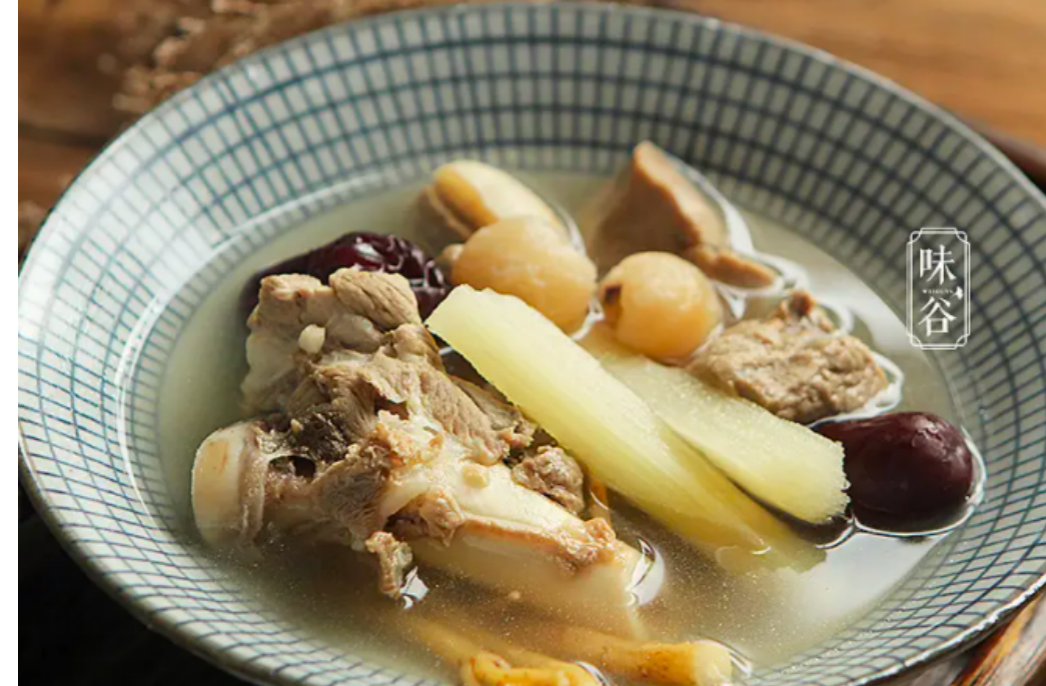 3. Pepper and Pork Stomach Chicken StewIngredients: 1 pig stomach, 1 chicken, 35g white pepper, appropriate amount of ginger slices, 1 piece of codonopsis, 3-4 slices of angelica, 5-6 slices of astragalus.Method: Clean the pig stomach and chicken, blanch with cooking wine and pepper until cooked, then stuff the chicken into the pig stomach, place in cold water; add the remaining herbs, bring to a boil over high heat, then simmer for 1-2 hours. After cooking, cut the pig stomach and chicken into strips, return to the soup, bring to a boil, and season with salt and pepper.Suitable for: This dish uses herbs that dispel wind and cold and warm the stomach and strengthen the spleen, making it suitable for individuals with Spleen and Stomach Yang Deficiency, commonly experiencing cold sensitivity in the abdomen and diarrhea from cold foods.
3. Pepper and Pork Stomach Chicken StewIngredients: 1 pig stomach, 1 chicken, 35g white pepper, appropriate amount of ginger slices, 1 piece of codonopsis, 3-4 slices of angelica, 5-6 slices of astragalus.Method: Clean the pig stomach and chicken, blanch with cooking wine and pepper until cooked, then stuff the chicken into the pig stomach, place in cold water; add the remaining herbs, bring to a boil over high heat, then simmer for 1-2 hours. After cooking, cut the pig stomach and chicken into strips, return to the soup, bring to a boil, and season with salt and pepper.Suitable for: This dish uses herbs that dispel wind and cold and warm the stomach and strengthen the spleen, making it suitable for individuals with Spleen and Stomach Yang Deficiency, commonly experiencing cold sensitivity in the abdomen and diarrhea from cold foods.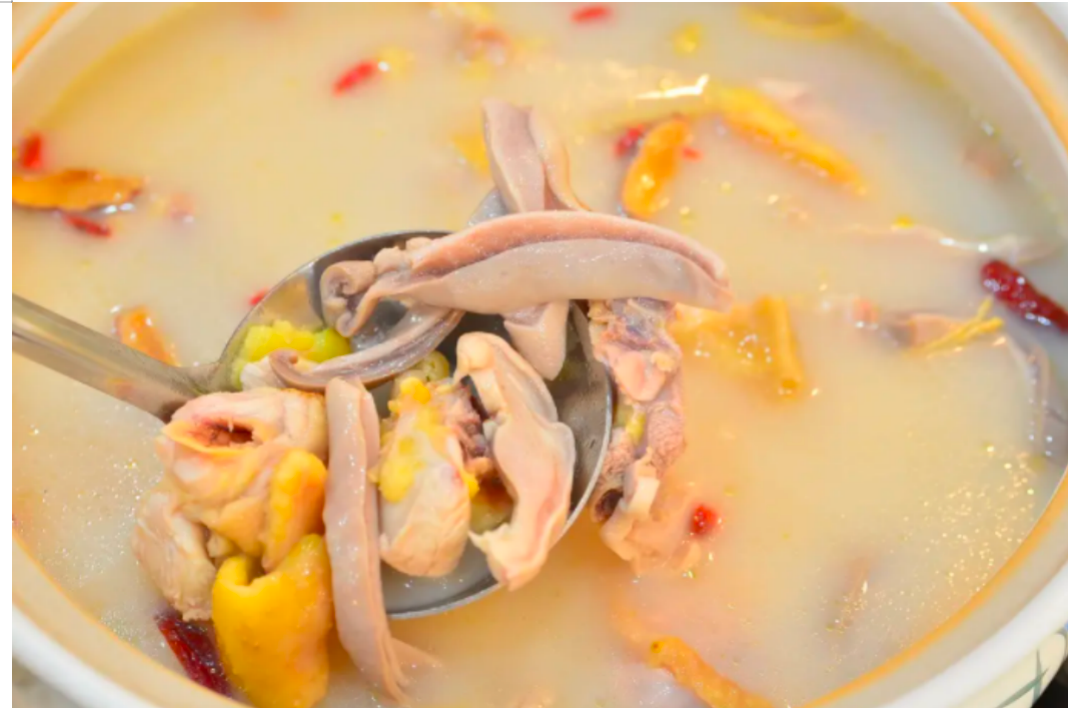 4. Ginger Sweet MilkIngredients: 150-200ml fresh milk, 1 small spoon of ginger juice, a little white sugar.Method: Place all ingredients in a clay pot and steam in water.For convenience, 2 slices of ginger can be used instead of ginger juice, and the ginger slices can be removed after steaming.Ginger sweet milk has the effects of dispelling cold, harmonizing the stomach, and stopping vomiting. This method is particularly suitable for treating cold-induced stomach pain, vomiting, esophageal obstruction (esophageal cancer), and acid reflux.It is especially suitable for middle-aged and elderly individuals with Spleen and Stomach Yang Deficiency and children during winter.Ginger is pungent and warm, entering the stomach, spleen, and lung meridians, with functions of dispelling cold, stopping vomiting, and opening the appetite.
4. Ginger Sweet MilkIngredients: 150-200ml fresh milk, 1 small spoon of ginger juice, a little white sugar.Method: Place all ingredients in a clay pot and steam in water.For convenience, 2 slices of ginger can be used instead of ginger juice, and the ginger slices can be removed after steaming.Ginger sweet milk has the effects of dispelling cold, harmonizing the stomach, and stopping vomiting. This method is particularly suitable for treating cold-induced stomach pain, vomiting, esophageal obstruction (esophageal cancer), and acid reflux.It is especially suitable for middle-aged and elderly individuals with Spleen and Stomach Yang Deficiency and children during winter.Ginger is pungent and warm, entering the stomach, spleen, and lung meridians, with functions of dispelling cold, stopping vomiting, and opening the appetite.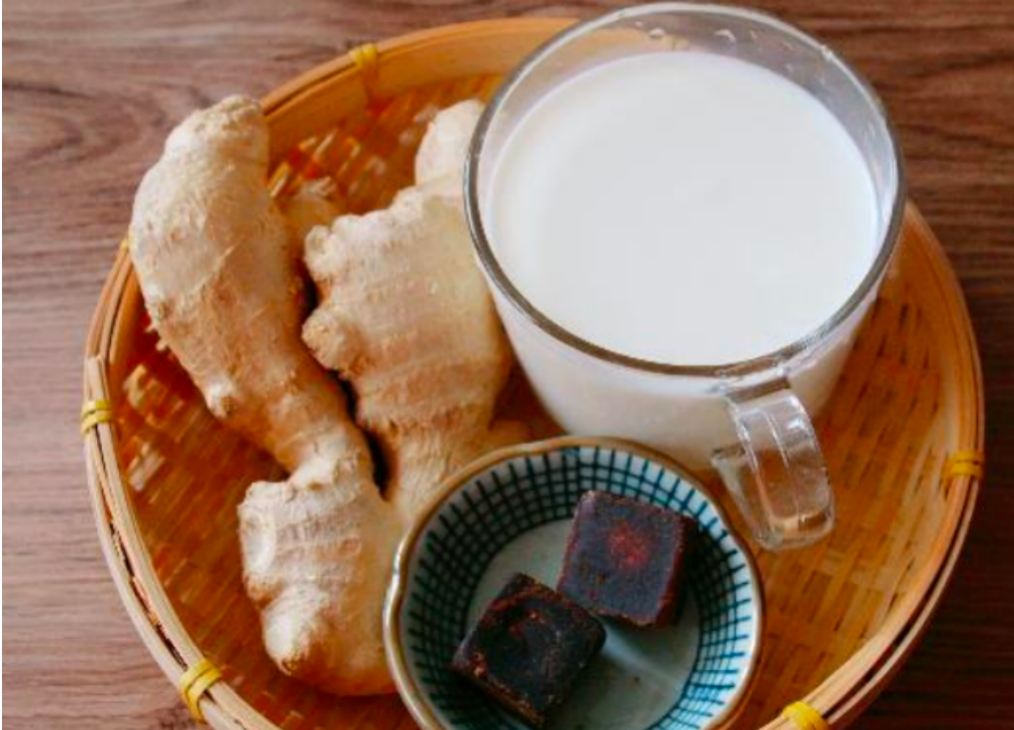 The “Compendium of Materia Medica” states that it “stops counterflow, dispels irritability, and opens the appetite.”Therefore, ginger is most suitable for winter colds, headaches, vomiting, abdominal pain, and diarrhea.Milk has the effects of nourishing deficiencies, benefiting the lungs and stomach, and generating fluids to moisten dryness, commonly used for weakness and reflux (esophageal cancer).The combination of ginger and milk has a long history. As early as the Tang Dynasty, the “Qianjin Recipe” recorded that milk “combined with ginger and scallions, stops infants from vomiting milk.”In winter, individuals with Spleen and Stomach Yang Deficiency should pay attention to keeping warm and avoid excessive consumption of cold and raw foods.Based on individual constitution, it is advisable to engage in outdoor activities such as walking, jogging, Tai Chi, or Qigong to enhance physical fitness.
The “Compendium of Materia Medica” states that it “stops counterflow, dispels irritability, and opens the appetite.”Therefore, ginger is most suitable for winter colds, headaches, vomiting, abdominal pain, and diarrhea.Milk has the effects of nourishing deficiencies, benefiting the lungs and stomach, and generating fluids to moisten dryness, commonly used for weakness and reflux (esophageal cancer).The combination of ginger and milk has a long history. As early as the Tang Dynasty, the “Qianjin Recipe” recorded that milk “combined with ginger and scallions, stops infants from vomiting milk.”In winter, individuals with Spleen and Stomach Yang Deficiency should pay attention to keeping warm and avoid excessive consumption of cold and raw foods.Based on individual constitution, it is advisable to engage in outdoor activities such as walking, jogging, Tai Chi, or Qigong to enhance physical fitness. All images and text in this article are sourced from the internet, and copyright belongs to the rightful owner. Please delete if infringing.
All images and text in this article are sourced from the internet, and copyright belongs to the rightful owner. Please delete if infringing.
